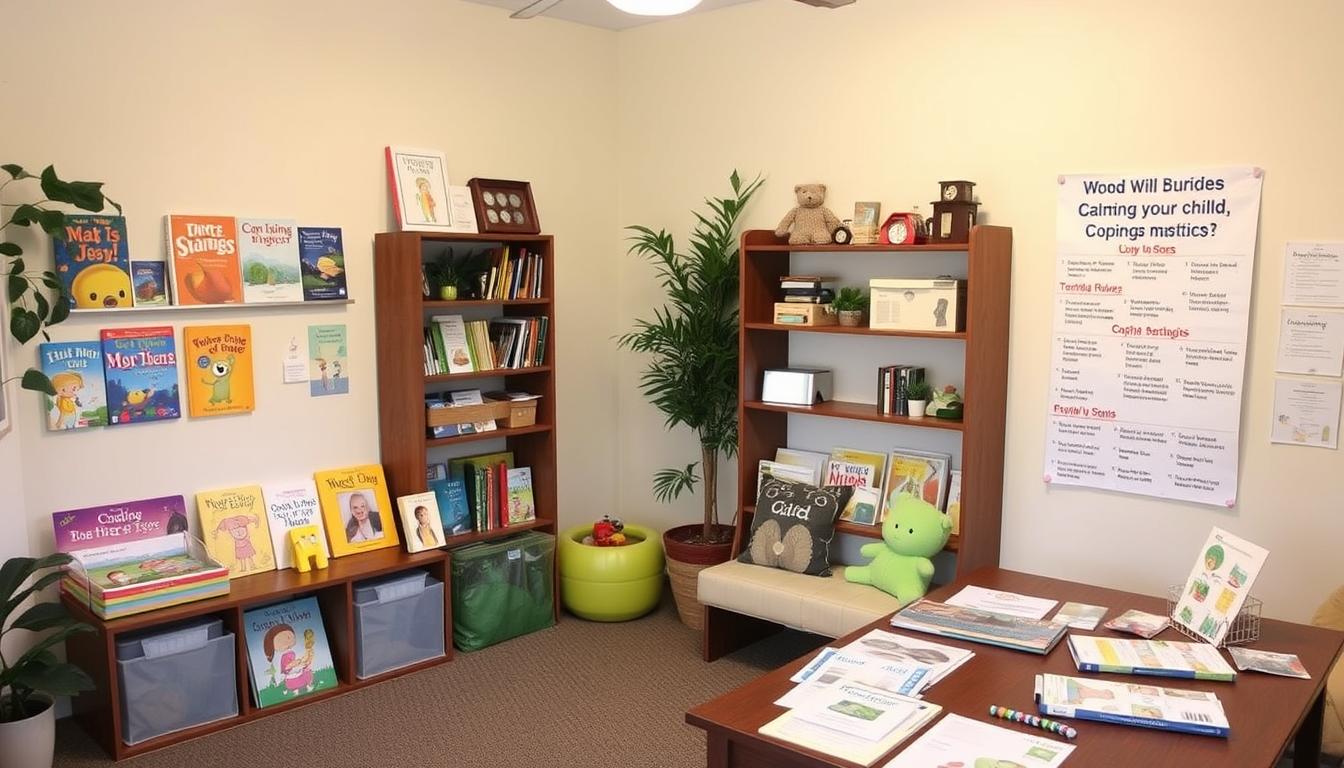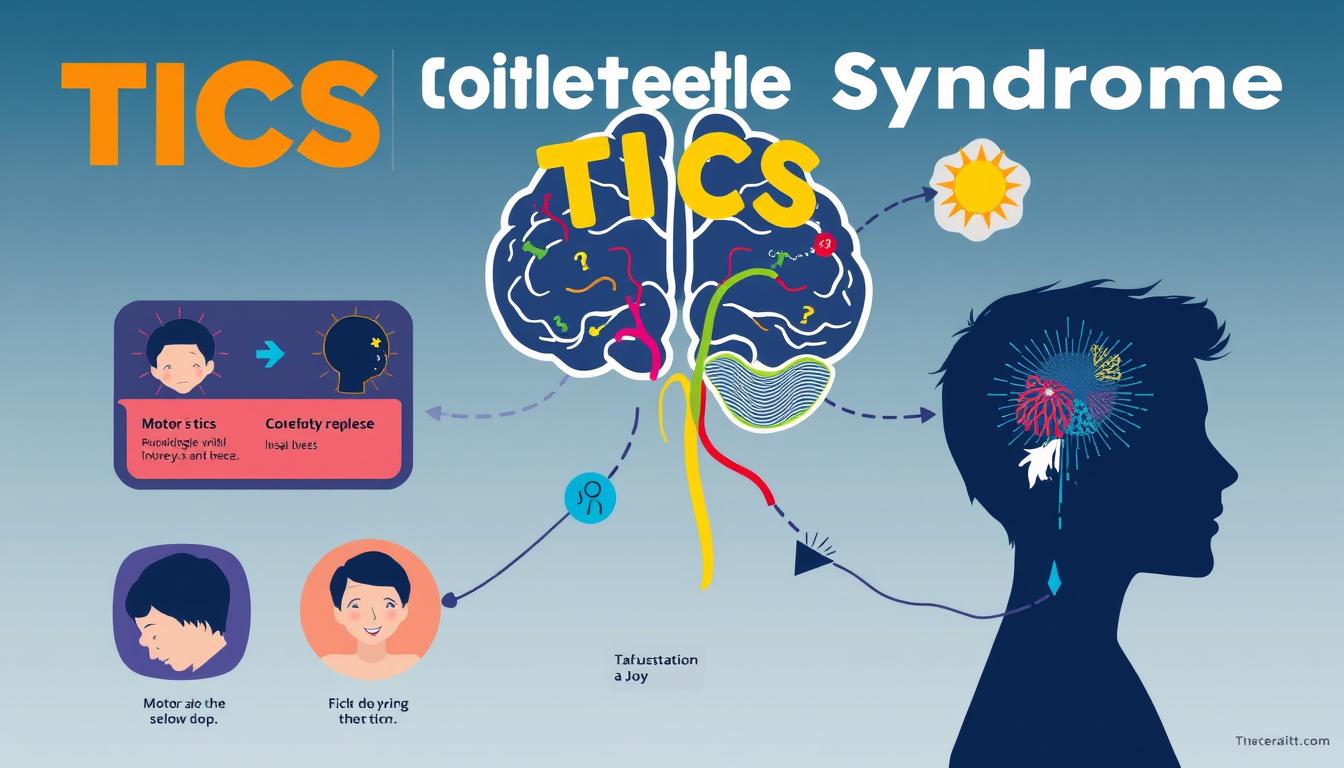As a parent, making sure your child is emotionally well is key. Today’s world is fast and tough, making it important to know about child mental health. This article will help you understand how to support your child’s mental health.
Key Takeaways
- Gain a deeper understanding of common mental health challenges faced by children
- Learn to recognize the warning signs that may indicate a need for professional support
- Discover practical strategies to build a strong parent-child communication foundation
- Explore the various professional mental health services and when to seek help
- Implement wellness-focused activities and create a supportive home environment
Understanding Child Mental Health Fundamentals
Keeping your child’s mental health in check is key for their growth and success. As a parent, knowing the basics of child mental health is vital. This knowledge helps you support your child better. Let’s explore the common mental health issues kids face, the signs to look out for, and how mental health affects their development.
Common Mental Health Challenges in Children
Children can deal with many mental health problems. These include anxiety, depression, attention-deficit/hyperactivity disorder (ADHD), and behavioral issues. These issues can come from genetics, environmental stress, or past traumas. Knowing these common problems helps parents offer the right support and help.
Warning Signs Parents Should Watch For
- Persistent sadness or irritability
- Significant changes in sleep patterns or appetite
- Difficulty concentrating or paying attention
- Frequent outbursts or aggressive behavior
- Social withdrawal or isolation
- Unexplained physical symptoms, such as headaches or stomachaches
Impact of Mental Health on Child Development
A child’s mental health greatly affects their development. This includes their academic performance, social interactions, and emotional well-being. Early action on mental health issues can help kids develop coping skills and resilience. This way, they can do well in all areas of life.
“Promoting mental health in children is not just about addressing problems; it’s about fostering their overall emotional well-being and resilience.”
Understanding child mental health basics lets parents take steps to support their child’s growth. It also helps provide the right resources and interventions when needed.
Resources for Parents Seeking Support for Their Child’s Mental Health
As a parent, dealing with your child’s mental health can be tough. But you’re not alone. There are many resources to help you support your child’s well-being.
Mental health counseling services are a great place to start. They connect you with experts in child and family therapy. These professionals can give you tailored advice and strategies for your child’s needs.
There are also family support services and resources for parents in your area. You can find local support groups, educational workshops, and online forums. These places let you connect with other parents who understand your challenges.
Helpful Resources for Parents
- National Helpline for Mental Health: 1-800-273-TALK (8255)
- Online Support Groups (e.g., NAMI Family Support Group, American Academy of Child & Adolescent Psychiatry)
- Educational Websites (e.g., Child Mind Institute, American Psychological Association)
- Local Community Centers and Religious Organizations
- School Counseling Services and Parent-Teacher Associations
Don’t face this journey by yourself. Use the many mental health counseling, family support services, and resources for parents. They offer the support and tools you need to help your child thrive.
| Resource | Description | Contact Information |
|---|---|---|
| National Helpline for Mental Health | Confidential 24/7 support and referrals for mental health and substance abuse issues | 1-800-273-TALK (8255) |
| NAMI Family Support Group | Free, peer-led support groups for family members of individuals with mental health conditions | www.nami.org/Support-Education/Support-Groups/NAMI-Family-Support-Group |
| Child Mind Institute | Nonprofit organization providing resources and expert guidance on child and adolescent mental health | www.childmind.org |

“The best way to help your child is to take care of yourself first. By prioritizing your own mental health, you’ll be better equipped to support your child’s journey.”
Building a Strong Parent-Child Communication Foundation
Good communication is key to a healthy relationship between parents and children. By making safe spaces for feelings and using active listening, parents can help their kids talk openly about youth mental wellness.
Creating Safe Spaces for Emotional Expression
Make sure your child has a place to share their thoughts and feelings without worry. This could be a weekly family meeting or a quiet corner. Let them know their feelings are okay and you’re there to support them.
Active Listening Techniques for Parents
- Maintain eye contact and avoid interrupting to show you’re fully listening.
- Repeat back what your child says to make sure you get it right.
- Ask questions that help your child share more about their feelings.
- Let your child know you understand and value their emotions.
Age-Appropriate Conversation Strategies
How you talk to your child changes as they grow. Young kids need simple words and questions that help them share. Older kids and teens need deeper talks about emotional well-being strategies and mental health.
| Age Group | Communication Approach |
|---|---|
| Early Childhood (3-7 years) | Use simple, concrete language; ask open-ended questions; encourage expression through play and art |
| Middle Childhood (8-12 years) | Engage in deeper conversations about feelings; discuss coping strategies; encourage journal writing |
| Adolescence (13-18 years) | Be prepared for more complex discussions; focus on validating concerns; encourage seeking professional parenting advice |

By focusing on open and age-right talks, parents can lay a strong base for their child’s emotional well-being and mental health growth.
Professional Mental Health Services and When to Seek Help
As a parent, knowing when your child needs professional help is key. Child therapy, mental health counseling, and adolescent psychology services offer great support. They help your child deal with tough challenges.
Many mental health experts focus on helping kids and teens. These include:
- Child Psychologists – They assess, diagnose, and treat mental, emotional, and behavioral issues in children.
- Child Psychiatrists – These are medical doctors who can prescribe medication and provide therapy.
- Licensed Clinical Social Workers (LCSWs) – They offer counseling and help find community resources.
- Licensed Professional Counselors (LPCs) – They provide individual, family, and group therapy for various mental health issues.
Seek help if you see big changes in your child’s mood, behavior, school work, or how they interact with others. Signs might be lasting sadness, pulling away, sudden anger, or trouble controlling feelings. Don’t wait – early intervention is crucial for your child’s mental health and well-being.
With the right support, your child can learn to handle their feelings and do well. Make your child’s mental health a priority. Look into the professional services and therapeutic options in your area.
Implementing Wellness Strategies at Home
Creating a supportive home environment is key for your child’s emotional health. By using wellness strategies at home, you can make a caring space. This space helps with child behavioral issues and supports the whole family.
Daily Routines for Emotional Stability
Setting up daily routines is very important for your child’s emotional health. Activities like bedtime rituals, regular meals, and playtime give a sense of safety and order. These routines help lower stress, manage feelings, and bring stability.
Stress Management Activities for Children
Children face many stressors, like school pressure and social issues. Teaching them stress management skills is crucial. You can start with breathing exercises, mindfulness, and creative activities like art or journaling. These help them understand and handle their emotions better.
Creating a Supportive Home Environment
The home environment greatly affects a child’s emotional well-being. Encourage open talks, validate their feelings, and show empathy. Doing family activities, spending quality time, and positive feedback can strengthen your bond. This helps in promoting emotional health strategies.
| Emotional Well-Being Strategies | Child Behavioral Issues | Family Support Services |
|---|---|---|
|
|
|
“Creating a nurturing home environment that supports your child’s emotional well-being is one of the most important investments you can make as a parent.”
School and Community Support Networks
Dealing with your child’s mental health can be tough. But, you’re not alone. Schools and local groups can help a lot.
Collaborative School Counseling
Today, many schools have great counseling services. These experts can help your child and work with you. They can find solutions and support for your child’s needs.
Work with your child’s school counselor. They can help with:
- One-on-one therapy sessions
- Peer support groups
- Lessons on mental health and coping
Community-Based Mental Health Resources
Your area probably has many family support services and parental guidance resources. These can help your child’s youth mental wellness. Look for:
- Counseling and therapy
- Support groups for kids and parents
- Workshops on mental health
- Activities that help with emotional well-being
Working with your child’s school and using community programs can give your family a strong support system. This helps when facing mental health issues.
“Taking care of your mental health is just as important as taking care of your physical health. Seek out the resources and support you need to help your child thrive.”
Digital Tools and Apps for Mental Health Support
In today’s digital world, parents have many resources to help their child’s mental health. There are apps, online communities, and virtual counseling. These tools offer support and guidance.
Age-Appropriate Mental Health Apps
Many mental health apps are made for kids and teens. They offer fun ways to improve well-being. Apps like Calm and Headspace help with relaxation and sleep.
Apps like MindShift CBT and Crisis Text Line provide therapy and crisis help. They are designed to support mental health.
Online Support Communities for Parents
Dealing with child mental health can feel lonely. Online communities, like those on Reddit and Facebook, offer a safe space. Here, parents can share, seek advice, and find support.
Virtual Counseling Options
Virtual counseling is a convenient option for mental health services. Platforms like Talkspace and BetterHelp connect you with therapists. They offer sessions tailored to your child’s needs.
This is great for families in rural areas or those with busy schedules. It makes getting help easier.



